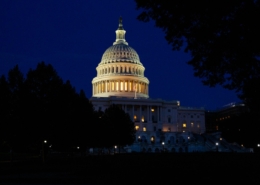The American Rescue Plan Is (Still) Worth Celebrating
By Debbie Cox Bultan, The Well News
CLICK TO READ THE FULL ARTICLE
Just three years ago, our economy was in the midst of an unprecedented crisis. Communities across the nation were reeling not only from the health implications of the COVID pandemic, but also from high unemployment, business closures and frightening economic uncertainty.
Bold and decisive action was needed.
In March 2021, President Joe Biden signed the American Rescue Plan Act into law, setting the stage for local, state and federal cooperation to heal our nation. On the third anniversary of this landmark legislation, we should reflect on the lessons of the law for how we approach future economic crises, because even three years later, the impact continues to benefit people across the country.
On the national level, ARPA catalyzed a broad and equitable economic recovery. When signed into law, the nation’s unemployment rate was 6.1%. ARPA spurred historic job growth, with nearly 14 million jobs created since then, and an unemployment rate consistently below 4%. And the recovery saw historic drops in the Black and Hispanic unemployment rates, ensuring communities everywhere benefited from the law.
Furthermore, the law helped more than 8 million people stay in their homes, brought down the cost of health care, led to the lowest child poverty rates in American history and helped more than 200,000 child care centers remain open.
That alone was historic. Yet national data doesn’t show the whole picture. One of the key successes of ARPA was to make possible investments in durable progress. Elected officials — from city council members to mayors to state legislators — are still using ARPA funds to bring about long-lasting benefits to their communities.
As CEO of NewDEAL, I hear stories about this progress every day from our network of 200 state and local leaders.
In Phoenix, Arizona, Mayor Kate Gallego used ARPA funds to provide Wi-Fi access and digital literacy support to residents in public and affordable housing communities for the next three years, benefiting nearly 5,000 low-income households across the city.
In Boston, Massachusetts, Mayor Michelle Wu is extending a fare-free bus program designed to help residents along corridors with a high percentage of low-income riders to help those who need it most get to and from their jobs.
In Milwaukee, Wisconsin, Mayor Cavalier Johnson is using ARPA funds to more quickly help families in homes with lead pipes and lead paint. Using $25 million from ARPA, the city is partnering with groups like Habitat for Humanity and others to increase the rate of lead abatement projects to protect children and families in vulnerable housing.
In Lincoln, Nebraska, Mayor Leirion Gaylor Baird steered ARPA funds to partnerships with local hospitals and agencies to create pathways to train more nurses and child care professionals. These jobs will not only help residents today, but will ensure Lincoln has the workforce that will allow the city to thrive in the years to come.
ARPA is a testament to our nation’s resilience and capacity to come together in times of crisis. It shows the power of leadership at all levels that listens, understands and acts in the community’s best interest. The funding, which runs through the end of this year, will continue to be a driving force behind our nation’s economic recovery.
As voters head to the polls later this year, Democrats need to actively call attention to the widespread success of investments like ARPA, the Inflation Reduction Act and the Infrastructure Investment and Jobs Act. They must emphasize, over and over, that Democrats are the only ones serious about both governing and addressing the problems Americans care about. Across the country, these Democrat-led initiatives are fixing bridges, building affordable housing, creating manufacturing jobs and showing that government can expand economic opportunity for everyone.
At the same time, Republicans have shown repeatedly that they are not serious about governing, repeatedly prioritizing culture war politics at every level, from book bans in the states to their fact-free impeachment circuses in Washington, rather than seeking productive solutions to the real challenges facing Americans. Among other things, that approach has made this Congress “the most unproductive in decades.”
ARPA stands as a shining example of how, across all levels of governing, Democrats are delivering and solving problems. And this November, voters will have a clear choice of whether this kind of progress is possible moving forward.
Debbie Cox Bultan has 25 years of experience in center-left politics, public policy and nonprofit leadership. As CEO of NewDEAL, she oversees both strategy and day-to-day operations for the organization. She previously served as executive director for the Civic Leadership Foundation, a Chicago, Illinois-based nonprofit that prepares underserved youth for college, career and civic life. Prior to helping launch NewDEAL, she spent 15 years at the Democratic Leadership Council where she served in a number of capacities, including national political director and chief of staff. Among her accomplishments at the DLC was developing a network of, and policy tools for, state and local elected officials across the country. You can reach out on Twitter @debbiecoxbultan and @newdealleaders.







